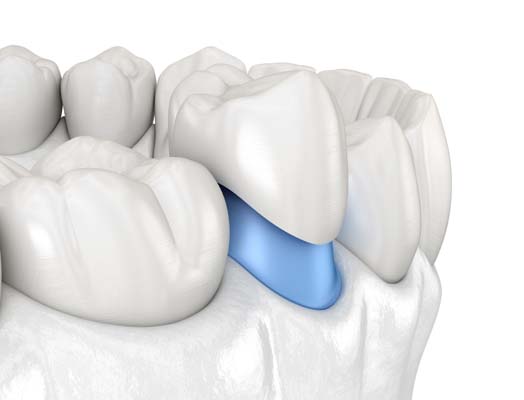3 Tips for Dental Crown Aftercare

Dental crowns are among the most common types of restorative treatments dentists provide. A crown has many uses and benefits. Not only can it restore the aesthetics of your smile, but it relieves pain, protects a damaged tooth, and prevents further problems from occurring to weak teeth. The process of getting a crown can require a few visits, but the results can last for years. There are some important steps you should follow to take care of it.
Reasons to get dental crowns
Crowns are not the right option in every situation, but this treatment makes sense for many conditions. The dentist might recommend a crown when a cavity is too large for a filling to support. Crowns usually cover a tooth after a root canal procedure as well. The dentist can place a crown over a broken, chipped, or cracked tooth. A crown also completes the process of getting dental implants.
Crowns are natural-looking in size, shape, and color. Usually, they are made of ceramic, porcelain, or composite resin. Crowns are durable and have a strong bite force. By having crowns, the patient should be able to chew effectively and have a full smile.
Be wary of certain types of food
People who have severely decayed or damaged teeth will have difficulty eating. Dental crowns restore this ability and let the person eat most foods. However, a person with a crown should cut down on some items. Hard foods such as some kinds of candy, popcorn kernels, ice, and bones can break a crown. Sticky foods such as taffy, caramel, and gum can pull a crown out. It is especially important to avoid these foods in the few days and weeks after getting a crown.
Do not forget about good oral hygiene
Having dental crowns does not preclude a person from having to brush and floss. It is still vital to keep up with these daily habits to maintain strong, effective crowns. Neglecting twice-a-day brushing and everyday flossing can lead to decay and gum disease around the crown, threatening the tooth underneath. This can also cause the crown itself to deteriorate or fall out.
Keep coming to the dentist’s office
Regular dental appointments should not stop or slow down after getting dental crowns. The dentist will want to follow up and see how well the crowns are performing. Checkups every six months allow the dentist to clean the crown and the teeth around it. If the patient detects that the crowns are coming loose or have any damage, a prompt visit is necessary. The patient should also call the dentist if they feel any pain while biting down or chewing.
Get the most out of your treatment
Having dental crowns can treat serious oral health conditions. Crowns also make a smile more attractive if you have damaged teeth. Your crowns can be more effective and last longer when you follow these guidelines and pay close attention to good maintenance. Your dentist can also give you some helpful tips to increase the longevity of your crowns.
Request an appointment here: https://www.beverlyhillssmilecare.com or call Mitra H. Bral, DDS at (310) 907-8467 for an appointment in our West Hollywood office.
Check out what others are saying about our dental services on Yelp: Dental Crowns and Dental Bridges in West Hollywood, CA.
Related Posts
When dentists recommend dental crowns, they are referring to caps that they place atop damaged teeth. Crowns restore the shape of a patient's tooth, covering the tooth and protecting it from further damage when fillings are insufficient. Dentists shape crowns from porcelain, resin, metal, or ceramic.Every day, dentists use dental crowns to restore smiles. When…
A dental crown is a device used to restore the functions and look of a tooth that has been damaged. If you need a root canal, a fractured tooth, or a big filling, your dentist may also decide to place a dental crown. The new crown covers the part of the tooth visible above the…
Dental bridges are a method of permanently replacing missing teeth. Like other restoration options, they have both advantages and disadvantages. They are a common and fairly popular option.Whether you are a candidate for bridges or not depends on your individual circumstances. Your dentist can tell you for sure whether a bridge is an option for…
In dentistry, a dental bridge is one of the popular options for closing the gap left by a lost or extracted tooth. Bridges are typically made up of crowns on the sides of the gap, which cover adjacent health teeth, called the abutment teeth. These teeth support the replacement teeth, which could be one or…

